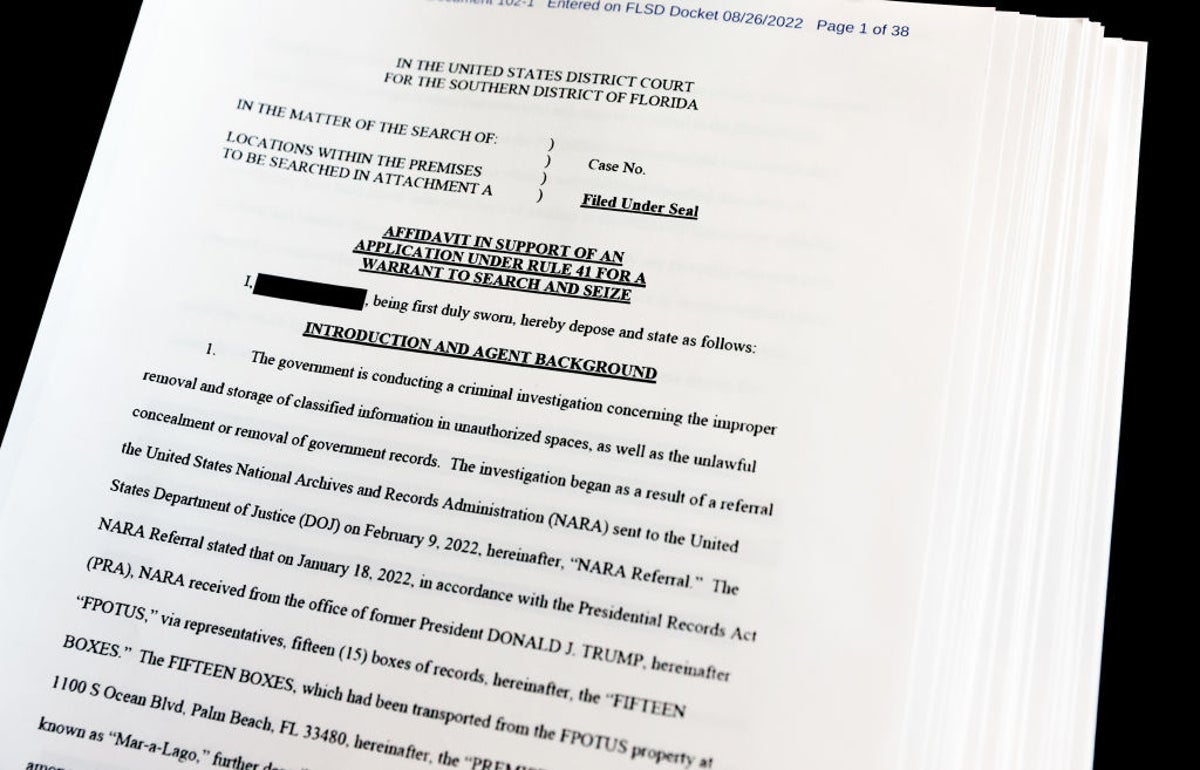
A relatively inexperienced judge with no national prominence has vaulted into the spotlight after she made a controversial ruling in Donald Trump’s ongoing legal battle, marking a victory for the ex-president.
Judge Aileen Cannon has become the newest enemy of the Twitter hashtag Resistance amid the former president’s efforts to resist an FBI investigation into his potentially illegal retention of classified documents.
As the judge assigned to rule on Mr Trump’s lawsuit against the Justice Department, Ms Cannon could play a key role in the ex-president’s attempts to use legal maneuvering to evade prosecution for illegally holding classified materials.
With newfound scrutiny on her role overseeing a case that could have major effects on that investigation, it’s important to understand her background and why it has so many on the left shaking their heads in dismay at the state of America’s legal system.
Who is Judge Aileen Cannon?
The native of Colombia joined the federal bench just two years ago. She became one of the last sets of judicial nominees sent to the US Senate by Donald Trump’s White House. This is where the controversy begins: Some have argued that it is flat-out improper for a judge appointed to the bench by a former president to be overseeing that same ex-president’s case.
Confirmed to the bench by a 56-21 vote, Ms Cannon became one of a crowd of Federalist Society acolytes elevated to courts around the country under Mr Trump’s presidency — including all three of his Supreme Court nominees.
Ms Cannon previously served as an assistant US attorney in the US Attorney’s Office for the Southern District of Florida, working in a number of roles including its major crimes division.
Why is she the target of so much controversy?
The furor around Ms Cannon stems from her ruling in favour of Donald Trump’s request for a special master to review documents seized from his home by FBI agents last month. The ruling was a win for Mr Trump, even if just temporarily, as he seeks to formulate a legal defence explaining why classified material marked “top secret” was held at Mar-a-Lago in defiance of the National Archives. Other questions also remain about whether the documents were stored securely.
Ms Cannon’s ruling on the matter is likely to be appealed by the DoJ, which opposed the special master request on the grounds that its own teams were reviewing the materials to determine whether any were protected by privilege. The DoJ also rejected the idea that presidential privilege could even be applied in this scenario. That shaky legal ground drew more scrutiny to Ms Cannon’s decision along with her conservative background and her citing the enormous public interest while explaining her ruling. Critics argued she was giving in to warnings (or threats) of riots from the far-right should Mr Trump not get his way.
Her critics include Harvard law professor Lawrence Tribe, who derided the ruling as “lawless” and meant as a delay tactic.
“She has disgraced her position as an Article III judge,” he added.
How will the DoJ respond to her ruling?
The question for the Justice Department will be whether to allow the special master process to play out, a time-consuming prospect that comes with the possibility of some documents being ruled as privileged, or fighting the ruling which could end up being even more time-consuming in the end and could well result in failure.
“[Y]ou have to take into consideration: Is it worth it to spend the time and effort and the delay to potentially get this overturned, recognizing that nothing’s guaranteed, or do you plow ahead with the special master, confident that you’ve got the law on your side at that stage — and secure enough in the idea that whatever damage comes from this ruling going forward, it’ll be minimal, if anything,” Bradley Moss, a prominent attorney specialising in national security issues, told the Law & Crime network this week.
Justice Department officials have given no indication yet of their plans, but face a Friday deadline in the immediate coming days to name their candidates for the special master’s appointment as well as any restrictions they would see placed on the process.







